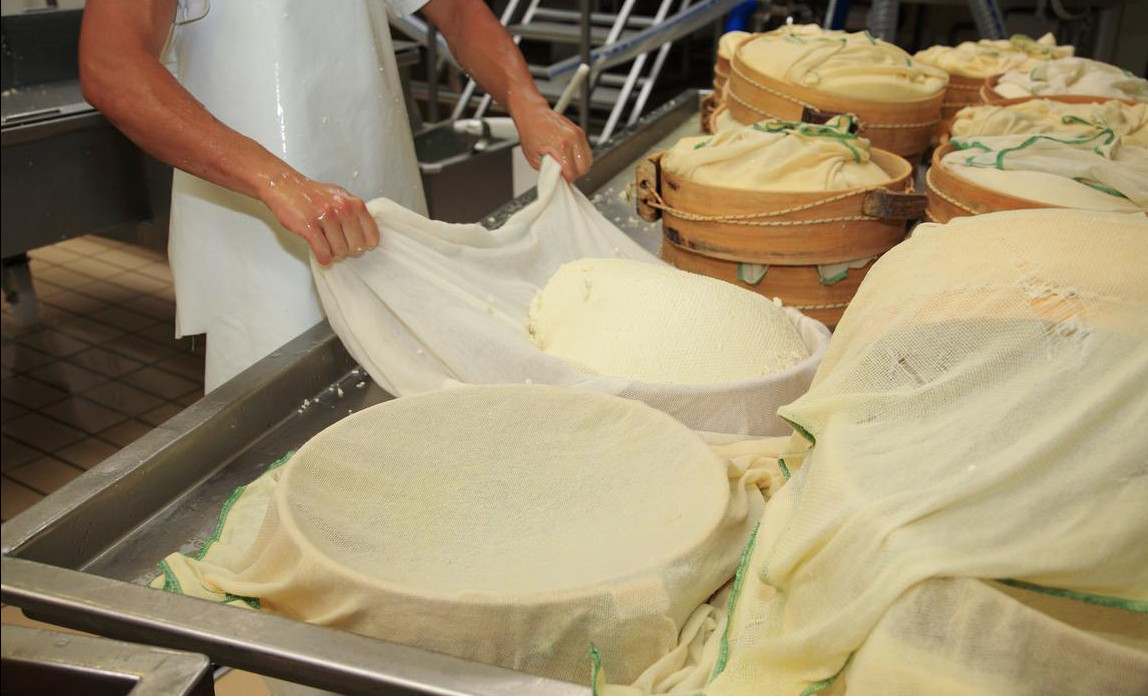An In-Depth Take A Look At Cheese Manufacturing: Components, Methods, and the Future of Artisan Cheeses
The detailed procedure of cheese production is a fascinating merging of art and science, where high-quality milk, rennet, and particular microbial cultures offer as foundational elements. As the sector increasingly focuses on sustainability and openness, the future of artisan cheeses assures to show both heritage and development.
Secret Ingredients in Cheese Manufacturing
A range of vital ingredients play an essential role in cheese production, each adding to the last product's flavor, appearance, and character. The primary active ingredient in cheese is milk, which can come from numerous resources, including cows, goats, and lamb - cheese factory melbourne. The kind of milk used dramatically influences celebrity's preference and consistency; for instance, cow's milk generally yields creamier cheeses, while goat's milk frequently produces tangy varieties
Another essential active ingredient is rennet, an enzyme used to curdle the milk, dividing it right into curds and whey. The source of rennet can be animal, vegetable, or microbial, each presenting unique characteristics to celebrity. Societies, including certain stress of germs, are additionally essential to the cheese-making process. They ferment lactose into lactic acid, assisting in flavor growth and texture.
Salt not just enhances the flavor however additionally acts as a preservative, hindering the growth of unwanted microorganisms. In addition, various flavoring representatives, such as herbs, spices, or also smoked wood, can be contributed to develop one-of-a-kind artisanal cheeses. With each other, these active ingredients develop the foundation of cheese production, establishing the phase for varied and abundant cheese varieties.
Typical Cheese-Making Methods
Using conventional cheese-making methods, craftsmens around the world protect classic approaches that have been passed down with generations. These techniques usually stress using top notch, locally sourced milk, which is main to the special tastes and structures of artisanal cheeses. The process generally begins with the mindful home heating of milk, followed by the enhancement of societies and rennet to assist in coagulation.
As soon as the curds form, they are cut, enabling whey to drain pipes, a crucial step that affects moisture web content and structure. Salting is an essential aspect of this process, enhancing flavor while also acting as a preservative.
Aging, or affinage, is another essential part, throughout which cheeses develop their characteristic scents and preferences. Craftsmens might employ details maturing atmospheres, using moisture and temperature level controls to improve the cheese's account. The commitment to these traditional methods not just sustains regional economies but additionally adds to the rich diversity of cheese varieties discovered internationally, commemorating social heritage and artisanal workmanship.
Modern Advancements in Cheese Manufacturing
Exactly how have technical developments transformed cheese manufacturing in current years? The assimilation of modern innovation has changed both the efficiency and quality of cheese manufacturing.
Furthermore, innovations in microbiology have made it possible for cheesemakers to select details microbial cultures and enzymes, maximizing flavor profiles and boosting life span. Using sensing unit innovation for keeping track of fermentation problems has actually likewise ended up being prevalent, permitting real-time adjustments to maintain ideal atmospheres for cheese aging.
These improvements not only enhance the high quality and sustainability of cheese production however additionally empower artisan producers to preserve typical tastes while embracing contemporary efficiency. As modern technology proceeds to evolve, the future of cheese production looks promising, mixing tradition with advancement.
The Function of Terroir in Cheese
In the world of cheese manufacturing, terroir plays a critical function in defining the distinct qualities of numerous cheeses. Terroir, a French term generally associated with white wine, includes the environmental variables that influence farming items, including soil composition, environment, and neighborhood flora and animals. In cheese-making, the distinct qualities of the area where the milk is sourced can impart specific flavors and appearances to the final item.
For instance, the grazing problems of milk pets substantially impact the milk's make-up, affected by the kinds of lawns and natural herbs available in a specific place. This varies not just in between countries yet also in between areas within the same country. In addition, the microbial neighborhoods present in the atmosphere contribute to the fermentation procedures, resulting in varied accounts in flavor and scent.
Cheeses such as Roquefort, Parmigiano-Reggiano, and Cheddar exhibit how terroir can form their identities, making them unique and frequently safeguarded by geographical signs. As manufacturers increasingly acknowledge blog the significance of terroir, there is an expanding focus on sourcing neighborhood ingredients visit our website and keeping conventional techniques, guaranteeing that each cheese genuinely shows its beginning.

Future Trends in Craftsmen Cheeses
A remarkable change is taking place in the craftsmen cheese market, driven by developing consumer preferences and technical developments. Progressively, consumers are moving towards special, premium items that emphasize both sustainability and neighborhood sourcing - cheese factory melbourne. This fad is prompting artisan cheesemakers to introduce, focusing on small-batch manufacturing and the use of conventional techniques while incorporating contemporary innovation to enhance high quality and safety and security
Moreover, there is an expanding passion in plant-based and different milk products, pushing conventional cheesemakers to explore new opportunities, such as cashew or almond-based cheeses. This shift not just provides to nutritional constraints but additionally aligns with environmental worries regarding animal farming.
Furthermore, openness in sourcing and production processes is ending up being vital. Customers are much more educated and need traceability, prompting producers to embrace more clear labeling techniques and take part in storytelling that highlights their techniques and worths.
Verdict
Finally, the complex procedure of cheese manufacturing fuses standard techniques with modern advancements, causing a varied variety of tastes and structures. The focus on top quality components and the impact of terroir emphasize the artistry associated with cheese manufacturing. As the industry advances, an emphasis on sustainability and openness will likely shape the future of artisan cheeses, providing to a significantly critical consumer base that values credibility and workmanship in milk items.